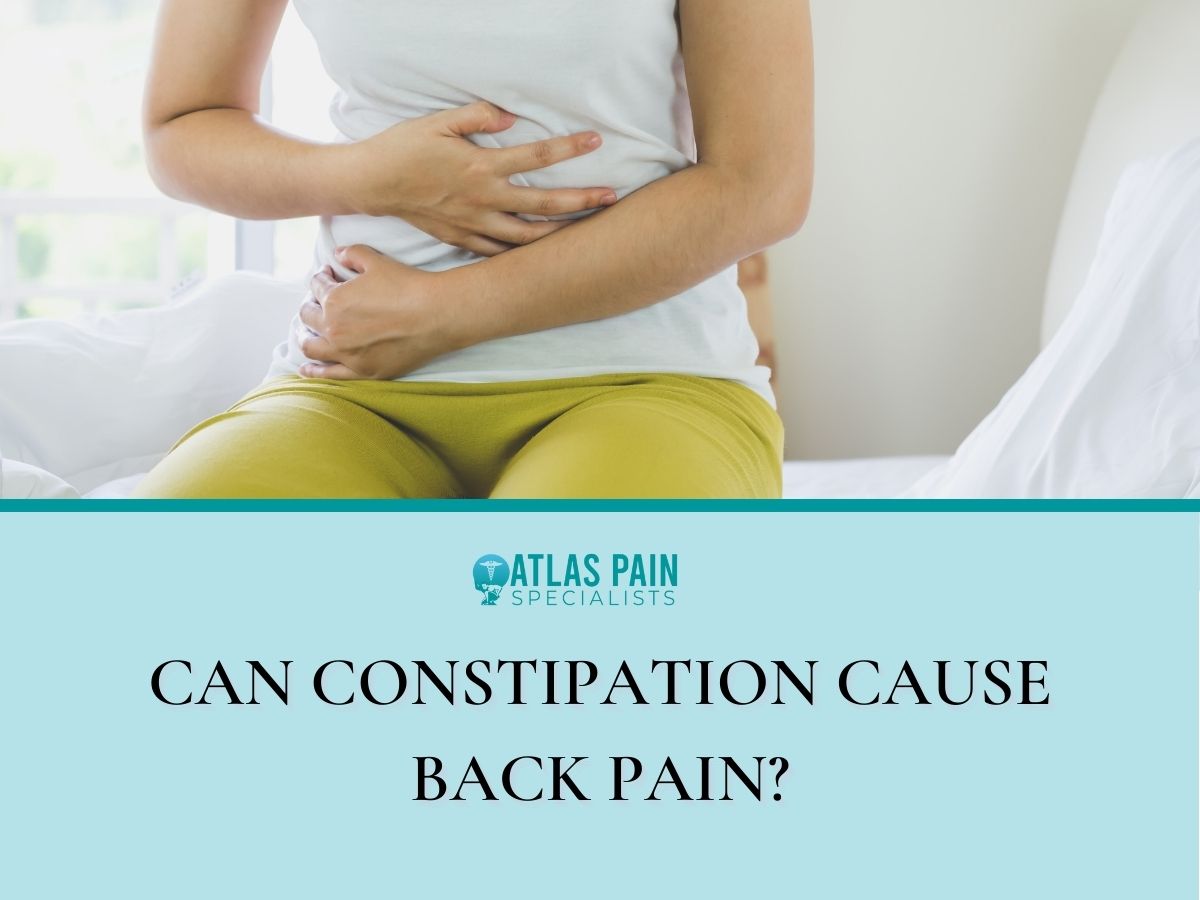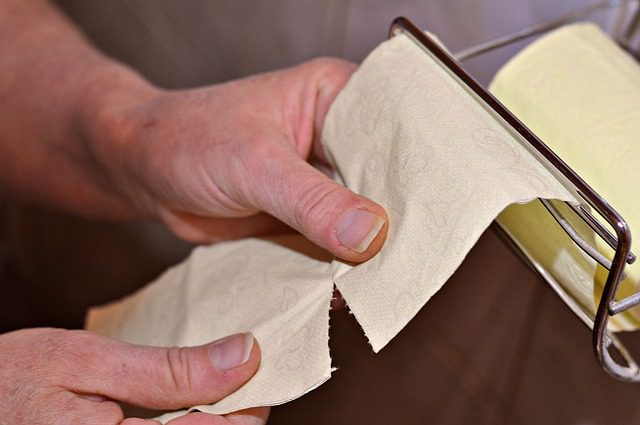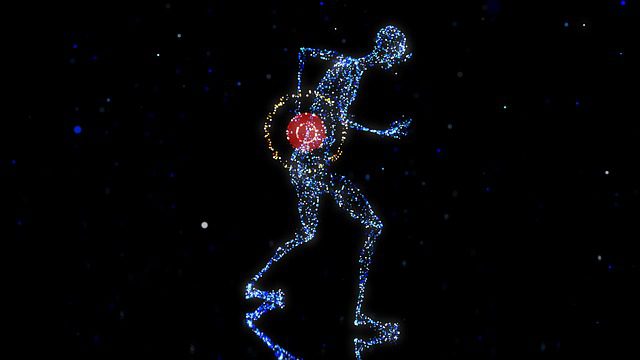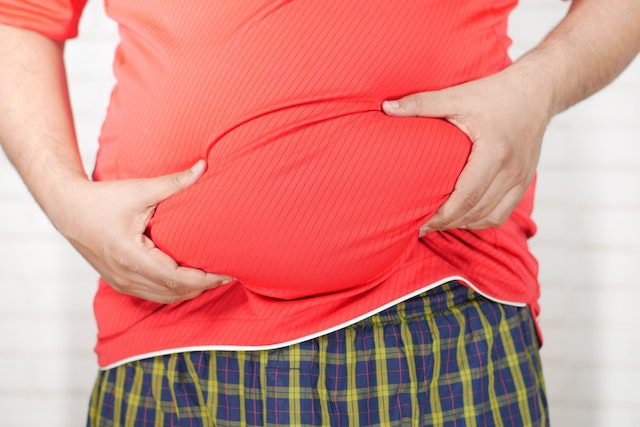

Can Constipation Cause Back Pain?
Constipation and back pain are common problems that most people have at some point in their lives. You have constipation when you don't go to the bathroom more than three times a week. Back pain can be a dull ache or a sharp pain that makes it hard to move.
Even though it might not seem like these two problems are related, they might be. This blog will discuss what causes constipation and back pain, how they are related, and what can be done to prevent and treat them.
Causes of Constipation

Lack of fiber in the diet
One of the main reasons people get constipated is that they don't eat enough fiber. Fiber is important for healthy bowel movements because it makes stools bulky and encourages regular bowel movements.
Fruits, vegetables, whole grains, beans, nuts, and seeds are all good sources of fiber. Fiber-rich foods can help make stools easier to pass by making them softer. Constipation can also be helped by getting regular physical activity and drinking a lot of water.
Dehydration
Constipation can also be a sign of dehydration. When the body isn't getting enough water, the colon takes more water from the stool. This makes the stool harder and harder to pass.
The best way to prevent and treat constipation is to drink a lot of water. Aim to drink at least 8 glasses of water every day. You can also help by eating more fiber.
Whole grain bread and cereals, fruits and vegetables, beans, and peas are all foods that are high in fiber. Your digestive system can also stay healthy if you work out.
Lack of physical activity
Constipation can also be caused by not moving around much. By stimulating the muscles in the colon, exercise helps people have healthy bowel movements.
There are other ways that exercise can help with constipation. It can help reduce stress and anxiety, both of which can make it hard to go to the bathroom.
Exercise can also help the body respond better to digestive hormones, which helps keep digestion in check. Lastly, exercise can help improve your overall health and lower the risk of constipation-related problems like hemorrhoids.
Medications
Some medicines can make you have trouble going to the bathroom. Among these are painkillers, antidepressants, and medicines for high blood pressure.
Talk to your doctor or pharmacist if you are taking any of these medicines and are having trouble going to the bathroom. They can help you find other medicines or change the amount of the ones you are already taking.
Medical conditions
Constipation can also be caused by health problems like Irritable Bowel Syndrome (IBS), thyroid problems, and diabetes.
Constipation can have medical causes, but it can also be caused by what you eat and how you live. Constipation can happen if you eat a lot of processed foods and not enough whole foods.
Constipation can also be caused by not getting enough exercise, not drinking enough water, or taking certain medicines.
Causes of Back Pain

Strained muscles or ligaments
Back pain can be caused by pulled muscles or ligaments, which can happen when you move quickly or lift something heavy.
When lifting heavy things, you should use the right form and, if you need to, ask for help. If you have back pain, you should rest your back and stay away from things that could make the pain worse, like lifting heavy things or working out. If the back pain doesn't go away, you should talk to your doctor about it.
Herniated disc
Back pain can also be caused by a herniated disc. This happens when the gel-like center of a spinal disc pushes through a crack in the outer layer and presses on a nerve.
A herniated disc can cause pain in the lower back that goes down one or both legs. It can also cause numbness, tingling, and/or muscle weakness in the area. A herniated disc is usually treated with a mix of medicine, physical therapy, and maybe even surgery and you may want to know whether chiropractor diagnose herniated disc.
Osteoarthritis
Osteoarthritis, which causes the joints in the spine to wear out, can also cause back pain. Osteoarthritis is a condition that gets worse over time because the cartilage in the joints breaks down.
As the cartilage wears away, the bones in the joint start to rub against each other. This causes inflammation, pain, and stiffness. Osteoarthritis of the spine can be treated with anti-inflammatory drugs, physical therapy, steroid injections, and in some cases, surgery.
Scoliosis
Back pain can also be caused by scoliosis, a condition in which the spine curves to one side. Scoliosis can make the back, shoulders, and neck hurt, and it can also make it hard to breathe and make you tired. Scoliosis is often treated with physical therapy, braces, or surgery.
Compression fractures
Back pain can also be caused by compression fractures, which happen when the bones in the spine break.
The best way to avoid back pain is to stay at a healthy weight, work out often, and stand up straight. Back pain can also be stopped by wearing a brace or support belt.
Also, it's important to get regular checkups and the right care for any back pain you already have. If your back pain doesn't go away, you should see a doctor to find out what's wrong and how to treat it.
The connection between Constipation and Back Pain
Straining during bowel movements
Constipation can make you strain when you go to the bathroom, which can put pressure on the muscles in your back.
Constipation and back pain can be helped by working out regularly, drinking lots of water, and eating a high-fiber diet.
Try to get up and move around every hour or so to keep your bowels moving. If these changes to your lifestyle don't help, talk to your doctor about medicines that can help.
Enlarged colon
Constipation that lasts for a long time can cause your colon to get bigger, which can put pressure on the nerves in your lower back.
A colon that is too big can also cause pain in the lower part of your stomach, bloating, and gas. You may also feel tired, sick, and lose your appetite.
If your constipation is caused by a medical condition like irritable bowel syndrome or a side effect of a drug, your doctor may suggest certain treatments.
In some cases, your doctor may suggest that you make changes to your lifestyle, such as getting more fiber and fluids or working out more. If these don't work, your doctor may give you a laxative or another medicine to help you get rid of constipation.
Fecal impaction
Constipation can also cause fecal impaction, which is when hard, dry stool gets stuck in the rectum and causes pain in the stomach and back.
Fecal impaction is a very serious problem that can lead to more serious problems. It can lead to feeling sick, throwing up, having a bloated stomach, and having a fever. It can also cause you to lose water, mess up your electrolytes, and even get sepsis if the stool gets infected.
If you don't treat a bowel blockage, it could kill you. Most of the time, treatment involves using laxatives, enemas, or manual removal to soften the stool. In some cases, you may need surgery.
Prevention and Treatment

1. Eating a high-fiber diet and staying hydrated
Constipation can be avoided by eating a lot of fiber and drinking enough water. Fruits, vegetables, whole grains, and legumes are all good sources of fiber.
Constipation can also be avoided by drinking a lot of water. Staying hydrated makes stool easier to pass because it softens it. Try to drink at least eight 8-ounce glasses of water every day
2. Regular exercise
Regular exercise can also help your bowels move in a healthy way. Regular exercise can help keep your bowels in order by sending more blood to your intestines and getting the muscles in your digestive system to work.
Stress, which can be a major cause of constipation and other digestive problems, is also reduced by exercise. Also, exercise can help you feel less bloated and less gassy, which can help your bowels move better.
3. Medications
Laxatives and medicines that soften stools can be used to relieve constipation.Laxatives are medicines that speed up the movement of stool through the intestines by stimulating them.
Laxatives that make stools bigger, like psyllium, contain fiber that soaks up water in the intestines and makes stools softer and bigger. Stimulant laxatives, like senna and bisacodyl, help move stool through the intestines by making the muscles in the intestines work harder.
Polyethylene glycol and other osmotic laxatives help soften stools by drawing water into the intestines. Some laxatives, like docusate, work by keeping water in the stool. Constipation can also be treated with medicines like lubiprostone and linaclotide, which can be given by a doctor.
4. Treatment of underlying medical conditions
If a medical problem causes constipation, treating that problem can help get rid of the problem. If you are constipated because you don't eat enough fiber or drink enough water, eating more fiber and drinking more water can help a lot.
Some other ways to treat constipation are to take laxatives or medicines that soften stools, exercise more, or even have surgery. If you have trouble going to the bathroom, you should see a doctor to get the right treatment.
5. Physical therapy or other forms of therapy
Physical therapy helps by easing pain and discomfort, making it easier to move around, making the muscles that support the spine stronger, and improving posture. There are also medications, injections, heat/cold therapy, massage, and acupuncture that can be used to treat back pain.
In some cases, surgery may be needed to fix a problem with the way the body is built or to treat an underlying condition.
Conclusion
In conclusion, both constipation and back pain are common problems that can sometimes be linked. Constipation can make you strain when you have to go to the bathroom, which can lead to an enlarged colon and fecal impaction, both of which can cause back pain.
In the same way, back pain can make it hard to go to the bathroom regularly, which can lead to constipation. Getting rid of constipation can help back pain, and getting rid of back pain can help get rid of constipation.
Both conditions can be helped by changing your lifestyle, taking medications, and going to therapy. Constipation can be avoided by eating a high-fiber diet, staying hydrated, exercising regularly, and taking care of any underlying health problems.
Physical therapy and other types of therapy can help with back pain. Overall, it's important to deal with both conditions if you want to be as healthy as possible.
About Dr. Sean Ormond



